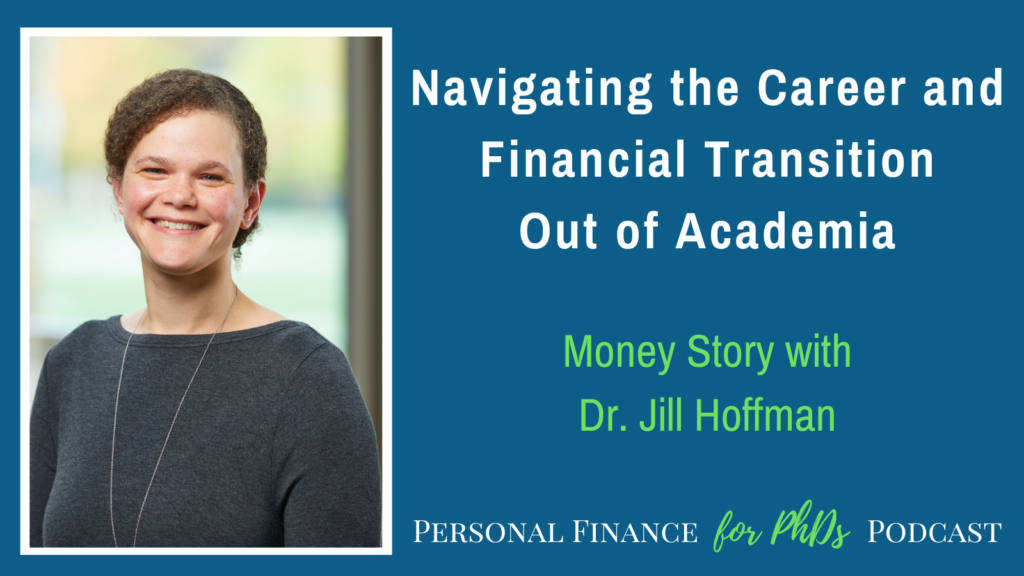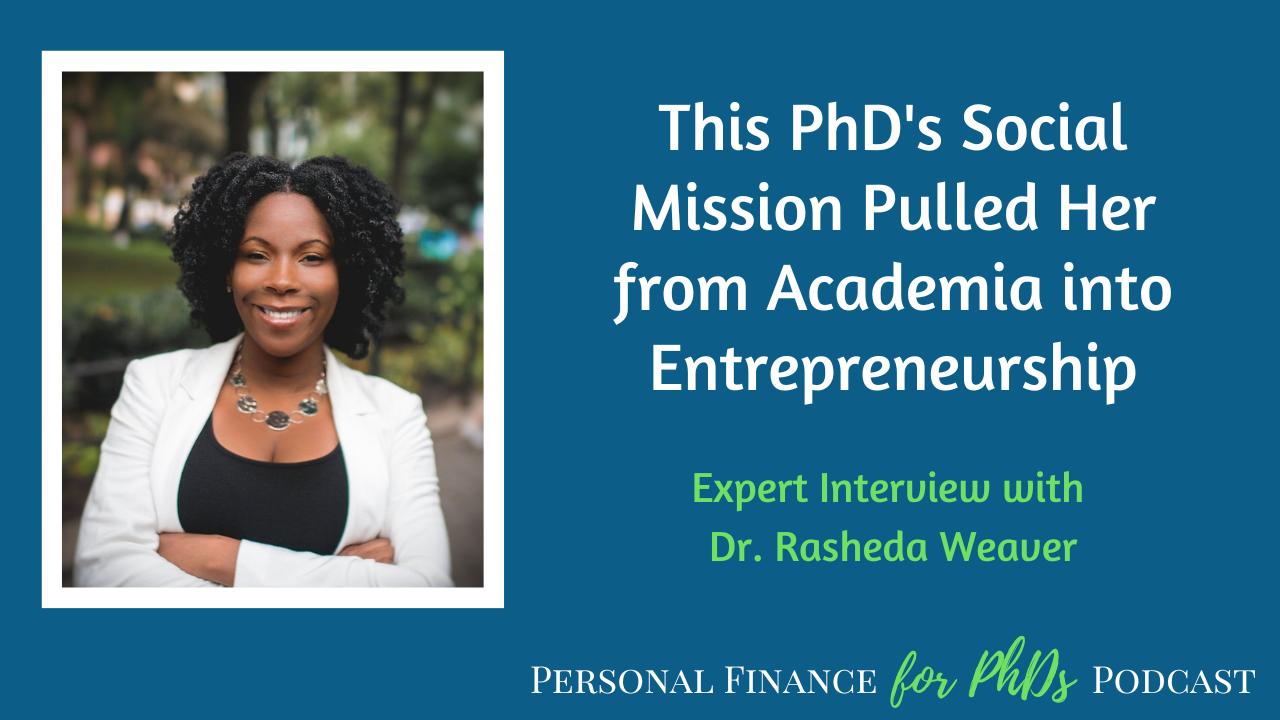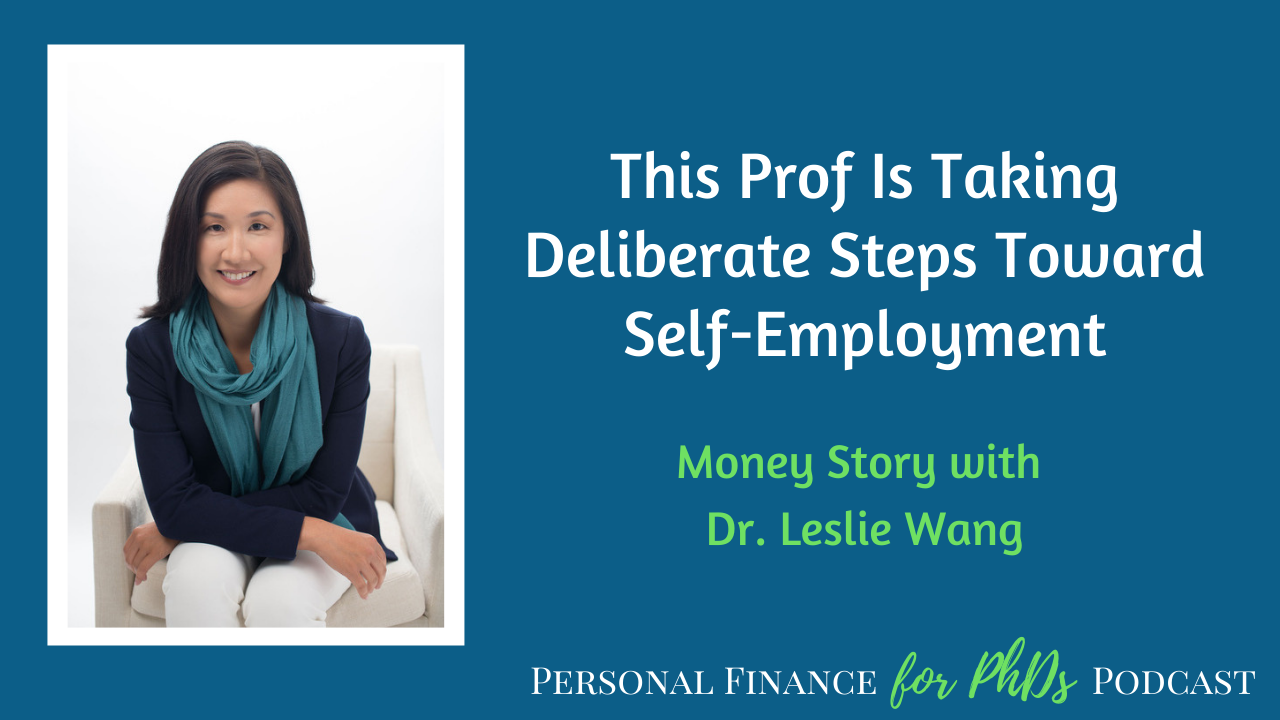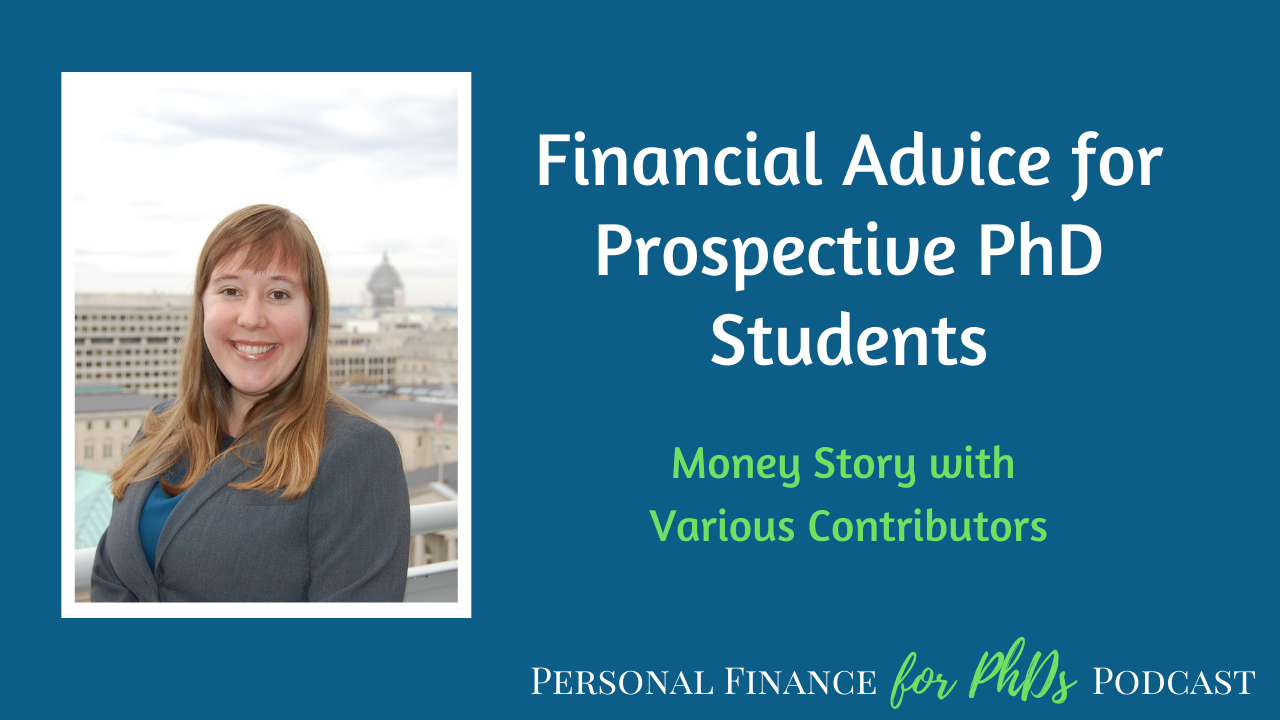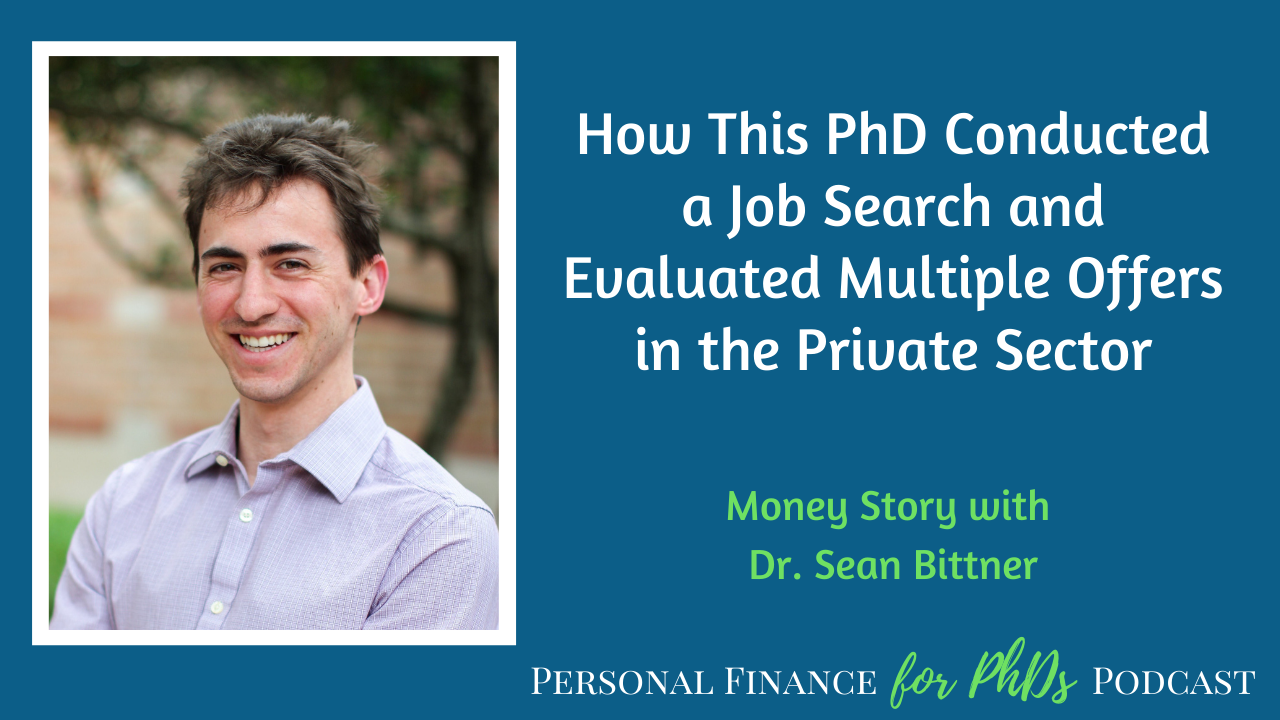In this episode, Emily interviews Dr. Paulina Cossette, a former professor and the owner of Acadia Editing. Paulina followed the prescribed academic path, but found herself profoundly unhappy in her faculty position. After leaving academia, Paulina stumbled into academic editing and eventually started working under her own brand. As a business owner, Paulina earns more, works less, and has true flexibility, which has enabled her to design her lifestyle in a way that was not possible within academia.
Links mentioned in the Episode
- Host a PF for PhDs Tax Workshop at Your Institution
- Dr. Paulina Cossette’s Instagram
- Dr. Paulina Cossette’s Facebook
- Dr. Paulina Cossette’s LinkedIn
- Dr. Paulina Cossette’s Academic Editing Website
- Dr. Paulina Cossette’s Free Video Series on Becoming an Academic Editor
- PF for PhDs Subscribe to Mailing List
- PF for PhDs Podcast Hub
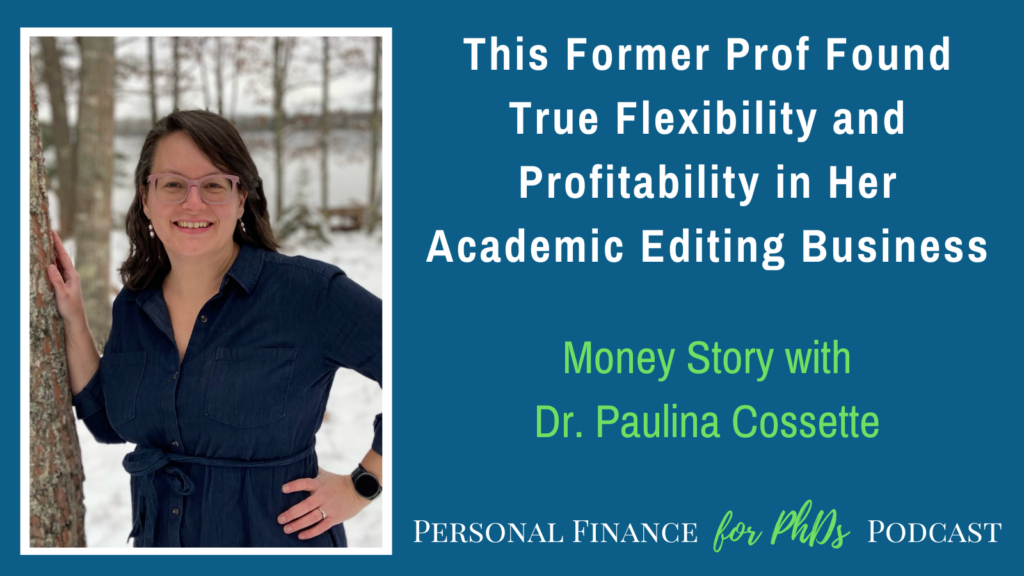
Teaser
Paulina (00:00): The system makes it unsustainable, particularly if you have kids, though, not exclusively. Um, and so I think I just reached a breaking point, you know, and, and it really wasn’t planned.
Introduction
Emily (00:24): Welcome to the Personal Finance for PhDs Podcast: A Higher Education in Personal Finance. This podcast is for PhDs and PhDs-to-be who want to explore the hidden curriculum of finances to learn the best practices for money management, career advancement, and advocacy for yourself and others. I’m your host, Dr. Emily Roberts, a financial educator specializing in early-career PhDs and founder of Personal Finance for PhDs.
Emily (00:53): This is Season 19, Episode 8, and today my guest is Dr. Paulina Cossette, a former professor and the owner of Acadia Editing. Paulina followed the prescribed academic path, but found herself profoundly unhappy in her faculty position. After leaving academia, Paulina stumbled into academic editing and eventually started working under her own brand. As a business owner, Paulina earns more, works less, and has true flexibility, which has enabled her to design her lifestyle in a way that was not possible within academia. If you’ve been enjoying this podcast and want to see it continue, would you please help spread the word? Take a minute to leave a review on Apple Podcasts or Spotify, text a recent episode that you enjoyed to a friend, or give it a shout-out on social media. Any of those actions helps me to grow Personal Finance for PhDs and continue finding amazing guests for the interviews. You can find the show notes for this episode at PFforPhDs.com/s19e8/. Without further ado, here’s my interview with Dr. Paulina Cossette.
Will You Please Introduce Yourself Further?
Emily (02:15): I am delighted to have joining me on the podcast today, Dr. Paulina Cossette, who is a former professor and currently has a business called Acadia Editing Services. I’m really excited to learn about her business journey, her exit from academia, all that kind of related stuff. And so, Paulina, welcome to the podcast, and will you please introduce yourself to the audience a little bit further?
Paulina (02:36): Yeah, thanks so much for having me, Emily. Um, so I used to be a political science professor. Um, I was in academia for about 12 years, uh, and in 2019, um, I had a 1-year-old child and I was just sort of, uh, very overwhelmed, um, and getting fed up with the lifestyle of academia, having to work seven days a week, you know, just facing that burnout, especially having just had a baby. Um, and so I decided to quit and we moved aco- across the country to live in Maine near our family. And I sort of fell into copy editing. And, you know, long story short, uh, four or five years later, here I am, I have a successful editing business and I work from home for myself. Um, and life is good.
Emily (03:28): I love this concept. Okay. Are you familiar with Cal Newport?
Paulina (03:32): Yes.
Emily (03:33): Okay, so I’m gonna get his like, name of this wrong, but it’s like lifestyle centered career design, something like that. Have you heard him talk about this lifestyle centric career design? Something like that? Um, so that really sounds like, I mean, you said you fell into it, but it, I mean, it really sounds like that’s kinda what you were doing, right? You had built up career capital in academia and then said, Nope, my lifestyle is more important than this particular job, and so I’m gonna pivot and use this career capital in another area that supports how I want my full life to look like. Okay. So very, very great brief introduction, but let’s kind of dive, you know, more into this and sort of starting back from the beginning of the academic journey, like what led you into the career in academia in the first place?
Dr. Paulina Cossette’s Academic Journey
Paulina (04:17): So I, you know, I was always a good student. Um, I was a first generation college student, so I didn’t really have guidance on any of that other than my grandparents who were always saying, you have to go to college because that’s how you succeed. And I just, I liked school and I liked learning, so I just, I went to college, um, I kept, I just kept going and, you know, I started doing research, uh, as an undergrad and then went on to get a, the PhD program and I didn’t really have a plan, you know, I just sort of enjoyed being in school. And then once you get to graduate school, I think this is true for many people. Um, your advisors direct you towards academia and, you know, I was in political science, so there weren’t, there wasn’t any discussion of alternatives of industry or, you know, working in government or anything else. Uh, and I didn’t really know, uh, I didn’t know any other options. And, you know, they said, you apply to these schools and you get the tenure track job, and it doesn’t matter if you don’t like where you’re living, that’s just part of it, you know, you don’t have to stay there forever. And so I, I think like many people, I sort of fell into this funnel, you know, of like, this is, this is what you do, and I just did what I was told. And, um, it worked for a little while, but that was a recipe ultimately for disaster. So, um, so yeah, I, I loved school and I loved learning, but it was just sort of like, I, I just kept doing what I was supposed to do, uh, and ended up, you know, ended up there and not very happy.
Emily (05:56): Hmm. I wonder if I was on a track similar to this myself, um, up until the point in graduate school, um, when I discovered personal finance, actually. And that’s when I figured out like, oh, people have like all kinds of different jobs and businesses sometimes, and like some people work part-time and some people retire. And like all the, it’s just sort of opened my mind. And not that I was on necessarily an academic track, but certainly to stay in research, that was my intention. Um, so that is so interesting, and I totally, I totally understand how that would happen, but also good on you for being successful, even in something where you were like, I’m just following the prescribed path here. Um, but clearly it, it went well for you for a time at any rate. Right? And then you sort of, you know, briefly said earlier that the timing of you leaving your job was, you know, around when your child was very young. Is there anything else you wanna share about that decision to leave and like maybe what you thought you were jumping into next?
Paulina (06:52): Yeah, I think, um, it was a long time coming and I’m actually, I’m reading Annie Duke’s book Quit right now, where she talks about how we put off this decision to quit far longer than we should. Um, and it, it brings back a lot of memories. ‘Cause that was the exact situation that I was in, that I was so unhappy. And I thought, well, maybe it’s just the school I’m at. So I went on the job market and I changed schools, and I was, it was better, but I was still unhappy. It’s still, you know, and like I said, I I, I had my son. I was working seven days a week, and it was just, the system makes it unsustainable, um, particularly if you have kids, though not exclusively. Um, and so I think I just reached a breaking point, you know, and, and it really wasn’t planned. Um, my husband and I had talked for a long time about moving, um, his mom had been diagnosed with lung cancer. Uh, and so all of these factors were sort of playing on our minds until we finally reached this breaking point and said, you know, I said, I just can’t do this anymore. And it was the summer of 2019 and I resigned and we sold our house and we moved to Maine. And I had no idea what I was gonna do. I, you know, I thought I would go on the non-academic job market, trying to find something around here in Maine, which is not, you know, there aren’t a lot of options, um, trying to find remote positions. And I kept striking out, you know, people kept telling me I was overqualified or I wasn’t the right fit, or they decided not to hire anyone. Or like, it was, it was a really demoralizing experience, you know, feeling like, I have all this training and education, I’m smart, I’m hardworking, but nobody sees that, you know? And I think a lot of people go through that where they just don’t know how to translate the academic lingo into industry lingo, um, on a resume. And so I had just written a book and we had worked with a freelance copy editor in as part of the process of publishing it. And I thought, oh, well I could do that. I’m a really good writer. Everybody always tells me I’m, I’m a good writer, you know, I can edit. And so initially I thought it would be temporary, but I ended up loving it. And, you know, like you were saying about the lifestyle change, uh, this was shortly before Covid and then Covid happened and I thought, oh my God, I’m so glad I’m working from home. I’m so glad I didn’t take a job in an office. Um, ’cause especially with little kids, you know, I didn’t wanna be having to go off to work and then come home and potentially, you know, getting sick or something. So, um, yeah, so I really just fell into it, um, and ended up loving it, and everything has just grown from there.
Building an Academic Editing Business
Emily (09:45): Amazing story. And I, I mean, I think so many people in academia, whether that’s just as grad students or postdocs or whether that’s a career in the professorship type position after that can relate to this. I mean, there’s so many like academic exit stories like floating around in the last 10 years. Um, even on this podcast. It hasn’t been published at the time that we were recording this interview, but an upcoming episode is someone with a very similar story of having gotten that tenure track position and then just, it was not the right fit and ended up quitting, moving across the country, you know, familial reasons in the mix, kids in the mix, all that stuff, not surprisingly another woman. Um, so there’ll be echoes of that same like, motivation, um, between these two interviews as well. Um, and so I’m so glad that you found something that you loved, but it, it, it does sound like you are casting around and applying for different things and trying different things and, um, not sitting stagnant, but really like pursuing some different things until you found something that was an awesome fit. And I, I just love that. So let us know more about your business now, like, um, it’s been a few years since you like started it. So what does it look like now?
Paulina (10:47): Um, so when I first started out, I was very much a freelancer. The idea of being an entrepreneur was like, that’s too much for me. That sounds like a lot of risk. I could never do that. Um, and so I started out freelancing for some different companies that we usually refer to as editing agencies, um, where you have scholars from all over the world upload their documents and then the company hires you as a freelancer to edit them.
Emily (11:16): I worked in such a service as a side hustle for several years, yes.
Paulina (11:19): Oh, fantastic. So, you know that it is not ideal and the pay is not very good, but when you’re just starting out, it’s a great way to learn the business. You know, you are, um, it’s essentially, I tell my students it’s on the job training. You know, it’s if, if you’re faculty, you know how to do academic editing, um, but you’ve just never done it at the level that is required, you know, in professional editing, fixing every mistake using advanced tools and word track changes, all that stuff. And so I think working for these agencies is a great way to get that initial experience. And my mistake was that I just stayed there too long. You know, I didn’t have enough confidence in myself. Um, I saw other editors in these Facebook groups talking about how the way you make real money is to get private clients. And I thought, oh, I’m not good enough for that. You know, like the, the academic imposter syndrome carried over into this new life, unfortunately. Um, but eventually I got more and more experience and I decided probably a year or two ago, you know what, I’m just gonna go for it. And I started, uh, connecting with some private clients. And at first it was just a handful of people, but I, my confidence grew and I, and, and people were happy with my work. And so I realized that I really am good at this. And I think, you know, I wish it hadn’t taken me so long. Um, I did have a second child in that period, so I, I, you know, had other things going on. But, um, but yeah, I think I’ve, I’ve learned so much from building a business, you know, and, uh, a lot of it is just having confidence in myself. But a lot of it also is also that, you know, a lot of PhDs, um, think that they don’t have any skills that they can apply outside academia. I think they’re, they’re terrified to leave graduate school or their academic position because they think that they’re not gonna be able to do anything else. But there’s so much about a PhD or other doctoral program that trains you to be successful. You know, you’re hardworking, you’re persistent, you’re creative, you’ve got thick skin, you know, like all of this stuff. You’re a, a pretty good writer, probably. Um, you know how to do research, you like to learn new things. Um, all of this, no matter whether you wanna go into editing or business or, you know, industry or whatever, you have so many skills that you can apply elsewhere. And I think that the process of building a business has taught me that
Emily (13:55): I agree so much. I actually, right when I was, I guess around the time I started my business, which is also the time that I finished graduate school, I was kind of, yeah, I was trying some different things, sort of like you did for a little while. And, um, I, I remember writing a blog post about like, the similarities between like entrepreneurship and, um, the academic life. And in addition, all those, all those characters, which that you mentioned are totally, I totally agree with them. And I don’t remember if you had this in there, but I really focused a lot on like, sort of being, um, like a self-starter slash really in charge of your own work in an independent way by the time you finish a PhD. Or certainly if you go beyond that, um, very similar to being like a solopreneur or like the top person in like a business. Um, and also for me anyway, working alone. ’cause like I am a solopreneur, so I work with contractors, but I don’t have employees of my own. Um, and so that was also very similar to like, okay in, when I was in graduate school, like I had some collaborators, but I, I worked my own projects. And so like, not being part of a closely working together team was very similar to me between those two like environments. So yeah, I mean, and I actually, I really relate also to your experience of like, I’m gonna try this, um, mode of work first as like a freelancer. So working for somebody else’s business, whether as an employee or as a contractor, either way you would sort of learn what the business is and then eventually gaining the confidence, as you said, to strike out on your own and sort of do it under your own branding. But coming with that, uh, there’s much more responsibility for actually getting clients. So like, that’s the part when I was doing the freelance, like editing work, I loved that I didn’t have to get clients, I just had to do the work. Whereas when you become the business owner, like the sales aspect is something you have responsibility for. So that’s a tough, like, that’s a big role to like add when you’re making that shift. Do you have anything else that you’d like to add to that?
Paulina (15:45): Um, yeah, you know, what you just said about, uh, marketing and things being just a bit more challenging. And that’s exactly what I tell my students is like, it’s not ideal to start out working for these editing agencies that pay less, but it lets you focus on that training, uh, and, and really perfect your editing skills before you then go out and try to attract private clients. ’cause marketing does take a lot of work. It is, you know, I don’t wanna paint the picture that entrepreneurship is easy because it’s not, but um, it certainly does pay off when you get there, you know, and you figure out how to connect with people. And I think, um, I also agree with what you were saying about the similarities between being faculty or being in academia and being a solopreneur is one of the biggest things that I hear from people that they’re terrified to leave academia because they don’t wanna lose their flexibility. And I always push back on that because, um, I don’t think academia is all that flexible. You know, there’s a meme that’s gone around that says, academia lets you work, or you have to work seven days a week, but you can choose any seven days a week that you want. Uh, and it’s so true, you know, but being, being an in entrepreneurship, you, you do, you get to keep that flexibility and you’re not working nine to five.
Emily (17:03): Hmm. I agree. Like it might be a big shift for like an employee to then strike out on their own in a business, an employee in the sense of like, not in an academic setting where like maybe you work your 40 or your 45 or your 50 hours, but you can kind of turn it off and you don’t have a ton of responsibilities like outside of that. But in the way that academia can be all consuming business also can be all consuming. And so whatever skills you’ve learned about, like the boundaries that you can put up can, it can also be translated between those two settings. And like you said, academia is flexible in the sense of like, yeah, exactly. You are just gonna have a ton to do. So like, pick what you’re gonna do, all that ton of work. And, you know, business ownership is a little bit different because you can sort of define the scope a little bit better. Someone else isn’t defining it for you of how much work there is to do.
Commercial
Emily (17:47): Emily here for a brief interlude! I’m hard at work behind the scenes updating my suite of tax return preparation workshops for tax year 2024. These educational workshops explain how to identify, calculate, and report your higher education-related income and expenses on your federal tax return. For the 2024 tax season starting in January 2025, I’m offering live and pre-recorded workshops for US citizen/resident graduate students and postdocs and non-resident graduate students and postdocs. Would you please reach out to your graduate school, graduate student government, postdoc office, international house, fellowship coordinator, etc. to request that they host one or more of these workshops for you and your peers? I’d love to receive a warm introduction to a potential sponsor this fall so we can hit the ground running in January serving those early bird filers. You can find more information about hosting these workshops at P F f o r P h D s dot com slash tax dash workshops. Please pass that page on to the potential sponsor. Now back to our interview.
Personal Finances as a Professor and as a Business Owner
Emily (19:03): Let’s talk about the money part of this. So compare, you know, your job as a professor, what that paid and what it required of you to what you’re doing now. Like how have your, I’ll say, how have your personal finances changed with this transition? And there’s a lot of transitions in there. You mentioned, you know, multiple children moving across the country. Care, you know, caring for elderly parents. Like there’s a lot in there. So like how has your financial situation changed from when you had that previous position to, to now?
Paulina (19:30): So, um, with editing specifically, uh, so much of how much you can earn is based on how quickly you can edit because there are some editors who charge hourly, but I think that’s sort of on the way out. I think both editors and clients like to charge per word. So, you know, for each project you can give a quote, uh, based on your per word rate, you know about how much you’re gonna make based on your editing speed. The client knows what they’re gonna pay. And so, um, obviously the faster you can work while, you know, being accurate still, uh, the more money you can make. And so I think I am fortunate because I can edit pretty quickly, um, certainly as I’ve gotten more experienced. Um, and so I would say that, you know, my, I was making about $60,000 when I was a, an assistant professor on the tenure track in political science when I left, plus the benefits. And, you know, you, when you have a salary job, they’re contributing to your health insurance and retirement and all that, which you obviously lose when you go freelance. Um, my first year out of my first year of freelance editing, I made about 45,000, and that was working maybe 20 to 25 hours a week. Um, and you know, just kind of trying to figure out the landscape. Uh, my second year I made the same amount, but I took three months off because I had my daughter, uh, and wanted to take time for that. Um, and then within the last few years, it’s just climbed steadily, especially when I started working with private clients. And, you know, you’re not having to, you can charge much more. You’re not giving up those costs to some other company that’s employing you. Um, and this year I’m set to hit six figures. So, uh, and that’s only working about 30 hours a week. So, you know, there are a lot of editors out there who struggle with finding clients, but I’ve, I’ve somehow managed to find this formula that lets me, that has let me build up a client base with referrals and repeat clients and just new people finding me through Google or whatever. Um, and I’ve had a lot of success. And so, you know, I’m, I’m happy to share that with other people, uh, you know, to, to try to help them find their way out of academia.
Emily (21:52): Hmm. So it’s while not, and immediately upon that transition, it’s the business that you’ve built over time, I would say does compensate you well, more than, um, the academic position did, even after accounting for the benefits and so forth. And you’re limiting your work to 30 hours a week as you said, whereas it was whatever, 60, 70, whatever it was when you were in academia. Um, awesome. I’m glad to hear that both the up the upside of more money and less time both together. That’s amazing. Um, so when you volunteered for this interview, you said that you had a message for academics who are unsatisfied with their jobs like you were. So what’s that message?
A Message for Academics Who Are Unsatisfied With Their Jobs
Paulina (22:33): Um, I, if, if I could just talk to every unhappy academic, you know, I would say you don’t have to stay you if you are miserable. And you know what, if you are in academia and you’re happy, that’s fantastic. Uh, that that’s wonderful. But there are so many people out there who are unhappy and they’re terrified to leave for all the reasons we’ve been talking about, and they just feel trapped. And, you know, in the so many people that I’ve talked to in the last several months, um, you can see the anguish in their faces, you know, you hear it in their voices and, and I know exactly what that feels like. The anxiety, the stomach churn, the do I leave? Do I stay, do I leave? Do I stay? Uh, it’s horrible and I don’t want that for anyone, you know? And so if I could, if I could tell anyone who is unhappy, that’s, that’s my message is, you know, if you wanna go into editing, great. I’d love to help you get there. But, uh, no matter what you wanna do, um, you just don’t stay right. Life is too short to, um, life is too short to be unhappy and to not do what you wanna do.
Emily (23:40): Incredible. I absolutely agree. Life is too short. I’m, I’m 39 now, and so I am, I’m not having a midlife crisis, but I’m having a midlife like rethink, like, yeah, this, this is my life. Like, am I happy with the choices that I’ve been making? Most of them, yes, I am very happy. Um, what can I do differently? You know, going forward, what can make this an even better experience for me? Because you only get one life. And so to spend your twenties and your thirties and into your forties, maybe like as you just described, like dreading every day at work. Absolutely. Life is too short. Um, so totally agree. Will you please tell us more about like, well, one, where can, where can people find you if they want to, you know, employ your editing services? And I understand there’s another arm to your business actually, which is like helping other people make this kind of transition. So tell us about all that.
Get in Touch With Dr. Paulina Cossette
Paulina (24:31): Yeah, so for editing, um, my homepage is acadiaediting.com. Um, and you can also find me on Instagram, Facebook, uh, LinkedIn. Um, and that’s, that’s pretty straightforward. If you have an editing project, I usually just ask to see a draft and give a quote and happy to help whether it’s, uh, you know, a dissertation or journal article or even I’ve edited tenure packets and job market letters. Um, and then yeah, this summer I launched a digital course and group coaching program called Becoming an Academic Editor. Uh, we’ve just wrapped our first cohort. Uh, it’s a 12 week program and we’ve started our second cohort, um, so far over 20 people have gone through it. Um, and it basically, I teach you what I did, right? How to start freelance editing, how to build a website, how to find clients, um, and it’s really awesome because of that we do these weekly Zoom calls and you’re just surrounded by people who are just like you, who understand how horrible academia can be and who are ready to get started with, you know, like you were saying with that, that midlife change of, uh, really starting to pursue what makes us happy instead of what we feel like we were supposed to be doing.
Emily (25:52): That sounds incredible. And actually not to like whatever, get content out of your course, but when you described your transition, you left the job first and then you started and you found editing after having, after struggling to find another position. And so I would imagine what you’re teaching people now is, okay, you already have an idea that you might wanna edit. Let’s start that on the side before we quit the big job. Is that right?
Paulina (26:16): There’s honestly, there’s a mix of people. Um, some found me and I had one student who said she was in a therapy appointment and decided she had to leave academia and she went home and googled it and she found my website and enrolled in the course right away. Uh, other people have started editing on their own and are not having success. They’re struggling to find work, and so they find me and, and are able to get some help. Um, other people, yeah, they just wanna make some extra money, you know, they don’t wanna leave their academic job and they like that with freelancing. They can work five or 10 hours a week editing and bring in some extra cash or do it in the summer or whatever. Um, so it’s really, it works no matter what your situation is, as long as you’re a strong writer and you understand academic publishing, then you know, it’s, it’s totally doable for whatever your timing and all that.
Emily (27:10): I love it. Um, I’ll share that. Like I, when I was doing this kind of work, which I did for, I don’t know, maybe three years or so, four years, um, strictly as a, you know, contractor for another company, um, I did it as a side hustle and I started it after I defended as I was starting personal finance for PhDs and it wasn’t bringing in as much money as I wanted to bring in yet. So it was like another, it was truly like for the money, that’s why I was doing it. I didn’t anticipate having a career in this area or anything. Um, but when I started I was like, wow, I could have been doing this earlier, like I could have been doing this during graduate school as a side hustle. Like, um, and I liked that it was within, it was all within kinda my area of expertise and like that was really like nice that I still got to use those skills. Um, so I think at any stage, if you wanna pick it up and whether it’s gonna be a thing on the side or whether it’s gonna be like you are really doing this like for a lot of time and it’s gonna be one of your main sources of income, uh, maybe transitioning on to being your full-time income, like, that’s awesome. So I’m glad that people can find you if they’re curious about this career path.
Best Financial Advice for Another Early-Career PhD
Emily (28:09): Um, let’s wrap up with the question that I ask all of my guests, which is, what is your best financial advice for another early career PhD? And that could be something that we’ve touched on already in the interview or something completely new.
Paulina (28:22): So, um, so my biggest piece of advice I think is, you know, we all know we’re supposed to save and have a budget and all that stuff, but at some point, if you’re not earning enough money, enough money, you can’t save, right? I, I grew up with a single mom with not very much money at all. And so I know you, you just can’t save if there’s not enough coming in. And so for anybody who is getting their PhD and thinking about going on the job market, absolutely you need to negotiate. Uh, and I think this is especially important for women in particular who, you know, we don’t apply to jobs because we think we don’t, we’re not qualified. Um, whereas men will apply to any job that you know that they feel like they’re extra qualified for, even if they’re not. Um, so apply to jobs when you get an offer. Negotiate, right? Don’t be a don’t be afraid to ask for what you’re worth and, uh, let them tell you no, right? Like don’t, don’t assume that you’re not gonna get it and then be afraid to ask. Just go for it ’cause you deserve it.
Emily (29:25): Awesome. I love it. Okay, we’ll leave it there. Thank you so much for volunteering to come on the podcast. It was delightful talking with you.
Paulina (29:32): Thanks so much, Emily. It’s been fun.
Outtro
Emily (29:44): Listeners, thank you for joining me for this episode! I have a gift for you! You know that final question I ask of all my guests regarding their best financial advice? My team has collected short summaries of all the answers ever given on the podcast into a document that is updated with each new episode release. You can gain access to it by registering for my mailing list at PFforPhDs.com/advice/. Would you like to access transcripts or videos of each episode? I link the show notes for each episode from PFforPhDs.com/podcast/. See you in the next episode, and remember: You don’t have to have a PhD to succeed with personal finance… but it helps! Nothing you hear on this podcast should be taken as financial, tax, or legal advice for any individual. The music is “Stages of Awakening” by Podington Bear from the Free Music Archive and is shared under CC by NC. Podcast editing by Dr. Lourdes Bobbio and show notes creation by Dr. Jill Hoffman.
